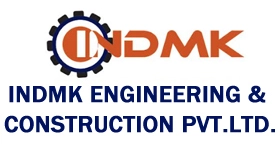An EPC contractor, which stands for Engineering, Procurement, and Construction contractor, is a company or entity that provides comprehensive services for the design, procurement, and construction of large-scale projects, typically in industries such as construction, energy, infrastructure, and manufacturing. The primary role of an EPC contractor is to manage and execute complex projects from start to finish, ensuring they are completed on time, within budget, and according to the specified quality and safety standards. Here's a breakdown of what an EPC contractor does:
Engineering:
• Preliminary design: EPC contractors begin by developing the project's initial design and feasibility studies, which outline the project's scope, technical requirements, and potential challenges.
• Detailed engineering: They perform detailed engineering and design work, including architectural, structural, mechanical, electrical, and other technical aspects of the project.
Procurement:
• Material procurement: EPC contractors are responsible for sourcing and procuring all the necessary materials, equipment, and supplies required for the project. This includes negotiating with suppliers, securing materials, and managing the supply chain
• Subcontractor selection: They hire and manage subcontractors and specialized service providers for various aspects of the project, such as construction, fabrication, and installation.
Construction:
• Project management: EPC contractors oversee the entire construction process, including planning, scheduling, and monitoring progress. They ensure that work is carried out efficiently, safely, and in compliance with all relevant regulations.
• Quality control: EPC contractors implement quality control measures to ensure that the construction work meets the project's specifications and standards.
• Quality control: EPC contractors implement quality control measures to ensure that the construction work meets the project's specifications and standards.
Project Commissioning:
• Testing and startup: EPC contractors are responsible for testing and commissioning all systems and equipment to ensure they function as intended.
• Handover: They prepare the project for handover to the client, providing documentation, training, and support for the operation and maintenance of the facility
Project Management:
• Cost control: EPC contractors manage project budgets and cost control throughout the project's lifecycle, aiming to keep costs within the agreed-upon budget
• Schedule management: They develop and adhere to project schedules to ensure that milestones and deadlines are met.
• Risk management: EPC contractors identify and mitigate potential risks that may affect the project's success
Documentation and Reporting:
• Recordkeeping: They maintain detailed records and documentation related to the project's progress, expenses, and compliance with regulations
• Recordkeeping: They maintain detailed records and documentation related to the project's progress, expenses, and compliance with regulations
Overall, EPC contractors play a critical role in delivering complex projects efficiently and effectively, providing a one-stop solution for clients who want to minimize the risks and challenges associated with large-scale construction and infrastructure development.

